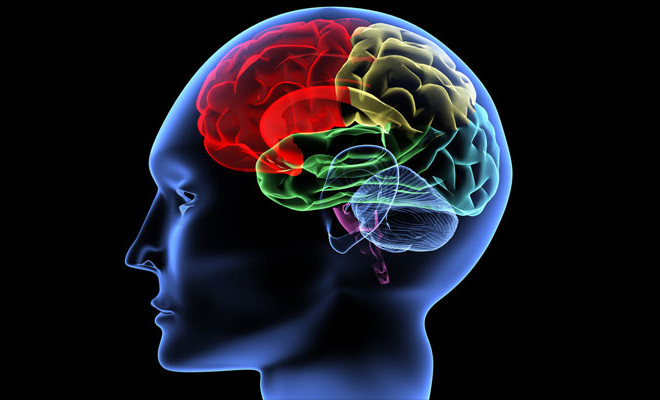
It’s Nothing But a Neuron!
Have you ever walked by a pie shop and, upon smelling a fresh backed pumpkin pie, been transported back in time to a fond memory of Thanksgiving? Or maybe caught a glimpse of a stranger with certain features and found yourself thinking about that girl or guy from way back when? How about a significant other who one day playfully wrestles with you, and all of a sudden you find yourself lashing out at him without really understanding why? What exactly is occurring neurologically and what are the implications for the recovery from abuse?
According to Daniel Siegel in The Developing Mind: How Relationships and the Brain Interact to Shape Who We Are (1999, Guilford Press), “understanding how trauma affects the developing brain can yield insights into the subsequent impairments of memory processing and the ability to cope with stress.” Before exploring the impairments and coping he refers to, let’s take a quick look at how memories are created and recalled in the first place.
There is a saying – neurons that fire together, wire together. When we have an experience, neuronal pathways are created in the brain by neurons firing and connecting to create a neural net. When we smell the pumpkin pie, what is actually happening is that a particular neuronal pathway is ignited. This neural net has now been modified in that it holds the initial memory of Thanksgiving with family and now the time walking by the store and experiencing the same smell. Thus, the neuronal pathway is expanded and reinforced by the reactivation.
Now, consider the implication if, instead of the warm smell of pumpkin pie, the experience is abuse. As Siegel points out, with “chronic occurrence, these states can become more readily activated (retrieved) in the future, such that they become characteristic traits of the individual. In this way, our lives can become shaped by reactivations of implicit memory, which lack a sense that something is being recalled. We simply enter these engrained states and experience them as the reality of our present experience.”
This is what Siegel means by “impairments of memory processing.” You respond to your significant other in the moment with fear and anger thinking that what he is doing is the problem, when, instead, a neuronal pathway has been triggered and the implicit memory of your abuser restraining you is activated. This is what you are responding to in reality. The same thing occurs in response to stressors. If our experience starts to make us feel trapped or scared, we may respond in the same way we did when needing to survive the abuse rather than in a way that actually addresses the present day stressor.
So then, are we always to be held hostage by these firing neurons? Absolutely not! “Each day is literally the opportunity to create a new episode of learning, in which recent experience will become integrated with the past and woven into the anticipated future” (Siegel). Neurons can be re-wired!
Perhaps the first step is to simply absorb the fact that many of our present day responses, thoughts, emotions are nothing but a neuronal pathway lighting up! Recognition of this creates space for us to consider the possibility that what we think or feel is going on may not be what is, in fact, really happening.
Secondly, as Siegel states, when one is able to inhibit the engrained state and respond to a situation, trigger, or stressor in a new way, that neuronal pathway will be adapted. The more frequently this occurs, the more modified the neuronal pathway becomes, and the behavior, thought, or emotion that is produced is also modified.
Finally, from my experience coaching people who have been abused, the ability to actually respond in a new way comes as a result of, first, developing the ability to separate what is actually happening from the interpretations or emotions that follow. There are other steps, to be sure, to complete the work of re-wiring, but this initial step is critical.
So, let’s practice! See if you can identify what happened and the interpretations in this story:
After a great date, Karen went home and did the happy girl dance. She landed on her couch, excited by the prospect of this new guy, Jim, who seemed to have it going on. He’d said he would call tomorrow and she was looking forward to it. The next day, Karen stuck close to her phone – but it never rang. By the end of the day, Karen was majorly bummed and essentially decided she was right, no one would ever love her.
What happened?
What do you think might be Karen’s interpretation?
The “what happened” is Jim didn’t call. Her interpretation could be that she will never be loved. All men are untrustworthy. She’s unlovable.
Now, the very next day, Jim calls her up and apologizes profusely. His phone had been stolen and he’d just now managed to get a replacement & track down her number from their mutual friend. I bet Karen wishes she hadn’t spent so much time wallowing in her interpretation (and, worse, reinforcing old bad neuronal pathways)!
I’ve come to affectionately think of these interpretations as “stories” – our little efforts at trying to explain, understand why something has happened. Unfortunately, most of the time – like 99% of the time – the story we come up with is really just an old neuronal pathway begging to be fed. We usually quickly oblige and find ourselves mired in negative self-talk and self-thought.
So, as you consider what “stories” you have, just take a moment to really get the connection between the thought, past experiences, and present day “lighting” up of the neuronal connections. You can begin challenging these connections and, as a result, create new possibilities for the way you view yourself, others, and experiences!
Bonus: One of my stories
I was ten years old when my grandfather began abusing me. He’d lived with us for many years, and I often helped my mom and dad take care of him. Simple little things like taking him a bowl of cereal, keeping him company, reading to him. He’d been a friend, a quiet companion, up until the day he first touched me.
The first time it happened, I had just helped him out onto the front porch. Usually, he’d sit by himself, but, that day, he grasped my arm and held on to me until we’d sat down on the swing. I didn’t think anything of it in the moment – maybe just that he wanted some company. This was the first time he touched my barely developed breasts.
I remember being paralyzed for some time, but eventually pulled away and went running to the back of the house to my mother’s room.I flung myself across her bed, sobbing, feeling completely scared and confused. I remember thinking, “Where is everyone? Why doesn’t anyone hear me crying? Why doesn’t someone check on me?”
It was in that moment that I created the false belief, “I’m on my own.”
This story has been one that’s taken a lot of work to re-wire, but I started by first getting clear that what happened was no one heard me crying/no one checked on me and the way that I interpreted that was that I was on my own.







